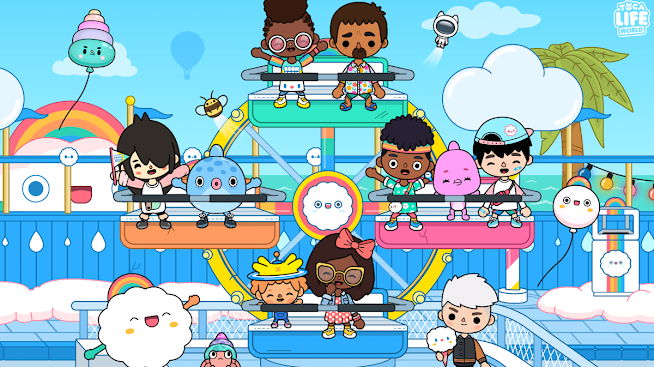Recently, news broke that Stockholm-based children’s digital ent
ertainment brand Toca Boca has undergone a round of layoffs. Although the scale was small, the move sparked discussion across the gaming industry, particularly in today’s climate of global economic uncertainty, making the news all the more noteworthy.
The layoffs were not officially announced by the company but were gradually pieced together through posts made by departing employees on LinkedIn. The affected positions span across multiple departments, including art, quality assurance (QA), game design, and development. As more voices spoke up, the true scope of the situation came to light.
Former Toca Boca game designer Andrew Brierly Chramer stated that the layoffs were related to “changes in project direction and cost-saving measures.” He wrote: “It’s not easy leaving a team I care so deeply about, but I’m proud of what we’ve built together and grateful for everything I’ve learned during this time.”
Andrew’s words carried no resentment—only maturity and acceptance. He mentioned that on his last day, he received a hand-drawn card from his colleagues, featuring characters from their games and a silhouette of the team together. “I almost couldn’t hold back tears,” he admitted. Such warm, genuine moments are all too familiar to professionals in Western workplaces.
The same sentiment appeared in a post from former art director Kim Aava, who wrote: “Although it’s hard to leave such a talented and inspiring group of people, I’m truly proud of the work we’ve done together.” Kim, who contributed to the visual design of the Toca Life series, once said in an interview that her childhood dream was “to create things that make kids happy all day long.” Though she’s taking a pause now, she believes that passion will continue to burn within her.
This round of layoffs also affected QA specialist Bathilde de La Chapelle. Amid growing speculation, Toca Boca’s parent company Spin Master finally responded to the media on July 7. In a statement to GamesIndustry.biz, the company said: “To adapt to the impact of global macroeconomic conditions on our business, we’ve had to make some internal adjustments, which include a small-scale impact on the Toca Boca studio.”
They added: “We remain committed to creating the safest digital playground for kids, where imagination guides storytelling and self-expression.”
Though the tone of the statement was calm, it couldn’t conceal the mounting pressures faced by the gaming industry—rising labor costs, user growth stagnation, and soaring user acquisition expenses—all of which have forced even well-known mid-sized studios to make difficult decisions.
In fact, this wasn’t Spin Master’s first internal restructuring in recent times. According to PocketGamer, the company recently announced the closure of another studio, Nørdlight, which had developed the mobile game Rubik’s Match. The closure was attributed to “high user acquisition costs and lower-than-expected returns.”
These cases highlight a harsh truth in the gaming industry: even if you have a product beloved by children and a strong presence on the App Store and Google Play charts, a business model that can’t sustain long-term operations will eventually lead to resource reallocation and downsizing.
For users, this round of layoffs at Toca Boca may not have any immediate visible effects. Those colorful and imaginative mini-games can still be launched as usual, and children can continue enjoying their virtual kitchens, pretend hospitals, and animal towns. But for the creators behind these experiences, their life paths have quietly taken a turn this summer.
It’s worth noting that Toca Boca has built an excellent reputation among families across Europe and North America. Known for encouraging children’s creativity and free expression, it’s often praised by parents as a “safe and inspiring screen-time choice.” In many American households, Toca Boca is practically a child’s “digital playmate,” with some editions even used as interactive materials in preschool classrooms.
A California mother named Susan commented on social media: “Our kids have been playing Toca Life since they were three years old. Now our oldest is in middle school. Our whole family loves this brand. I hope they continue creating fun and educational content in the future.”
For Toca Boca, while the layoffs were described as “minor role adjustments,” they undeniably reflect the broader struggles the gaming industry faces in today’s turbulent economy. Behind every departing employee is not just a number on a spreadsheet—but a story interwoven with creativity, passion, and the emotional bonds between creators and players.
Whether the company will resume expansion in the future remains uncertain. But for now, we can still offer our heartfelt applause to those creators who, even as they step away from the stage, continue to carry their passion and purpose forward.








Leave a Reply